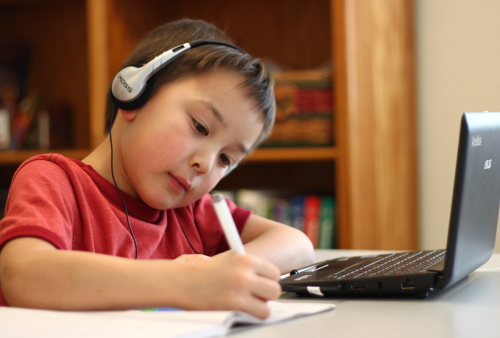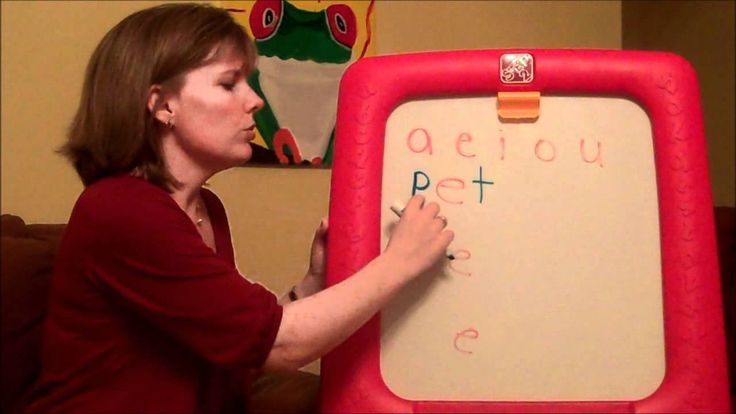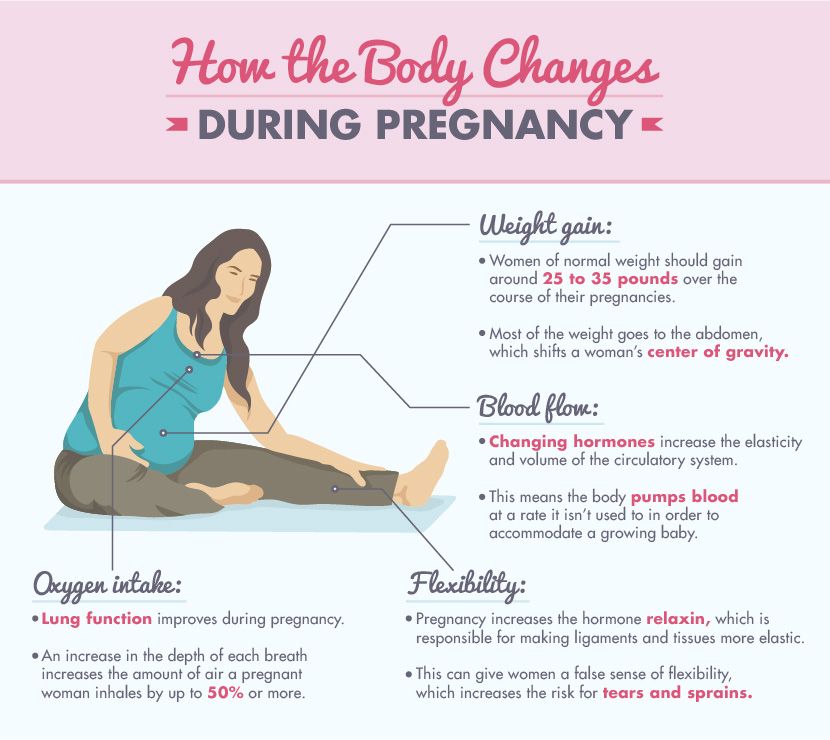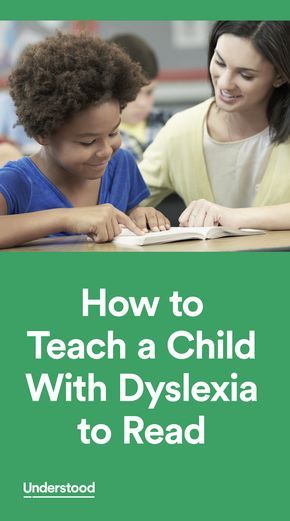How does a homeschooled child graduate
Graduating From Homeschool | Home Educators Association Of Virginia
Getting Ready to Launch
This is one of the most common questions we hear.
In Virginia, the parent—as the administrator, planner, teacher, and facilitator—is the person who determines and verifies completion of the student’s course of study.
To graduate a homeschooled child:
- The student completes the course of study outlined by the parent.
- The parent presents the student with a signed and dated diploma.
- The parent has a transcript that backs up the course of study.
Once graduation has taken place, regardless of age, a teen is no longer under compulsory school attendance laws.
- 22.1-254.(A). The requirements of this section shall not apply to…(b) any child who has obtained a high school diploma or its equivalent, a certificate of completion, or has achieved a passing score on a high school equivalency examination approved by the Board of Education, or who has otherwise complied with compulsory school attendance requirements as set forth in this article.
Alternatively, if a student is enrolled in a correspondence course, the course administrator will verify completion of the course of study and, in most cases, sign the diploma.
When to Notify (or Not) the Superintendent or School Board
Once a student is 18, he is no longer under compulsory attendance laws, and parents are not required to seek permission from the superintendent for graduation. Neither does the law require parents to notify the superintendent that their child has graduated. As a courtesy, some parents may choose to do so, but the law does not require permission, notification, or documentation. You would not want to send a copy of your teen’s diploma and/or transcript because the superintendent has no authority to view or have a record of a homeschooler’s diploma or transcript. Once your child graduates, no action is required by the law.
If your student is 18 prior to the August 15 NOI filing deadline and you are continuing home instruction, you are not required to submit a Notice of Intent (NOI) for the coming year because your 18 year old is no longer subject to compulsory education laws.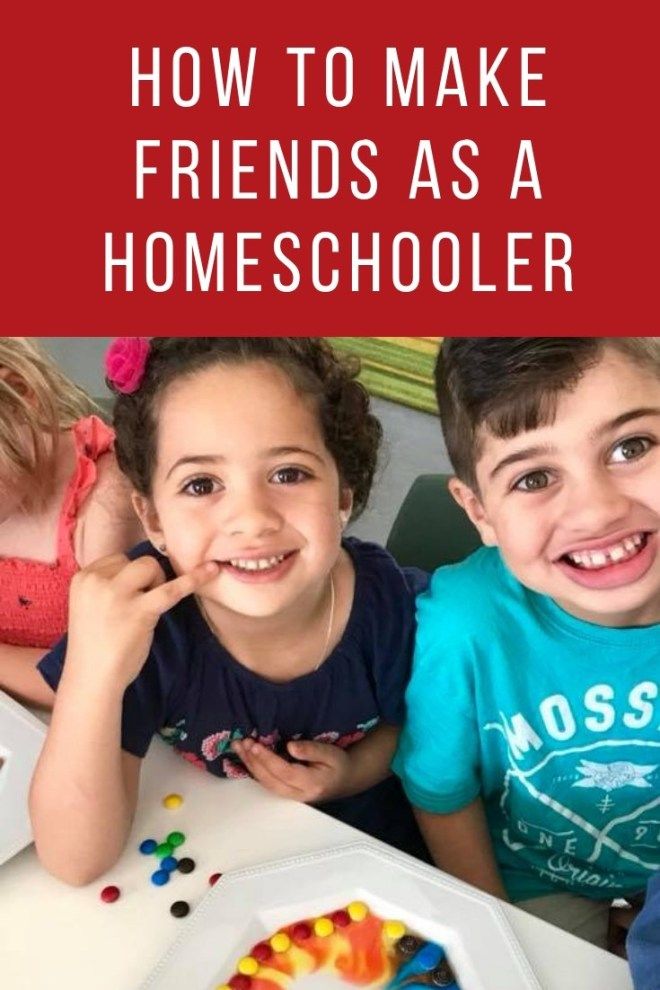 Neither are you required to send in testing results if your student is 18 prior to the August 1 testing deadline.
Neither are you required to send in testing results if your student is 18 prior to the August 1 testing deadline.
If a student is under the age of 18 on August 15, parents should submit a NOI for the coming year. However, you are not required to submit test results the following year if your student has graduated, or if he has turned 18 prior to the August 1 testing deadline because he is no longer under homeschool laws or compulsory attendance laws.
Diploma and Transcript
A diploma represents the completion of a course of study that has been prepared for your student’s education. In the case of most homeschooled students, parents set the requirements and when they are reached, they issue a diploma to verify completion, and the parent should sign and date the diploma. A homeschooled student can also receive a diploma from a correspondence school or a distance learning program.
A diploma should be accompanied by a transcript. A transcript is a record of the courses that were completed, the final grades, and important educational experiences (interests, sports, leadership skills) that were completed in grades 9-12 in order to receive the diploma.
Because home instruction is a lawful form of education in Virginia, parents have inherent authority to issue a diploma as evidence of graduation from that program. State agencies and public schools do not have the statutory authority to issue or verify homeschool diplomas because they did not create the program of study and they did not verify course completion.
A diploma supported by a transcript is very important. The transcript should be created for grades 9-12 indicating the course names, grades, credits, GPA, and graduation date.
No one can anticipate the opportunities that may present themselves in the future. The request for a diploma is a standard requirement for the job market and for further educational opportunities. A diploma is required–and the validity of a homeschool diploma is well accepted–by public four-year colleges, the U.S. military, a wide variety of other post-secondary training opportunities, and federal college loan programs. Many corporations require local human resource (HR) departments to verify completion of high school by requesting a diploma—even though the applicant may have previously been in the job market.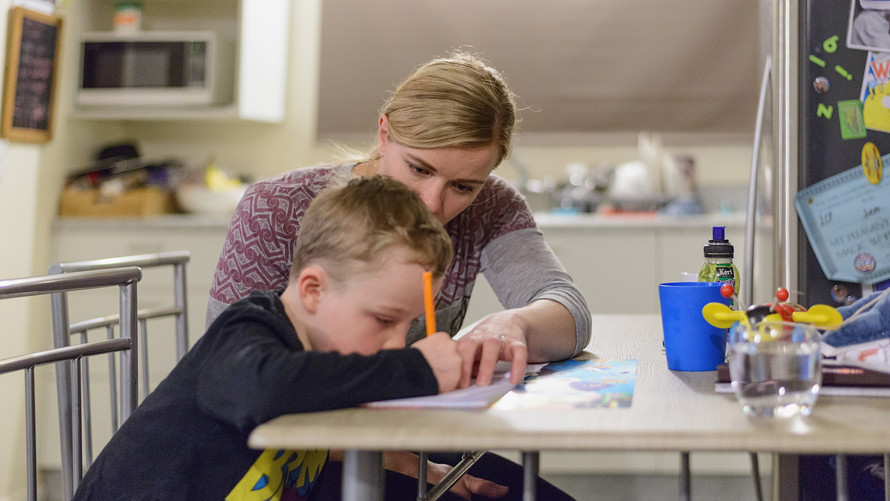
A diploma and transcript show:
- an important benchmark in the educational process;
- the hard work and academic achievement of the student;
- acquired knowledge of specific subjects;
- determination and willingness to take advantage of learning opportunities; and
- the development of work habits, career skills, and good character that can prepare a student for the future.
A parent-created transcript and parent-signed diploma are accepted as evidence of graduation by community colleges, state and private colleges, the military, federal financial aid, and the workforce.
If you’re uncertain about creating your own diploma and transcript, HEAV can help with these services. HEAV’s homeschool transcript service is designed to guide you through the ins and outs of creating a college- or career-ready transcript.
The deluxe diploma was designed especially for HEAV and is printed in rich black ink on parchment.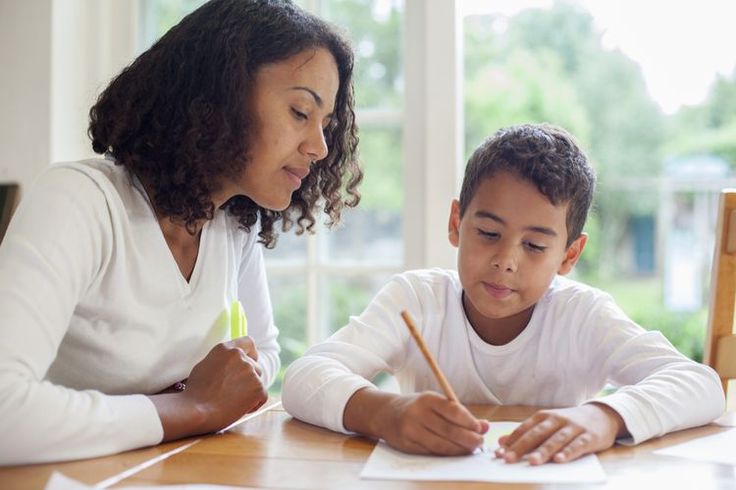 This certificate will be inscribed with the graduate’s name, date of graduation (June 10, 2017), and the parents’ names or family school name. An engraved seal and gold ribbon corners adorn the diploma–it is NOT a stick-on seal and printed corners as seen on other diplomas. It is encased in a beautiful, padded navy case with matching seal.
This certificate will be inscribed with the graduate’s name, date of graduation (June 10, 2017), and the parents’ names or family school name. An engraved seal and gold ribbon corners adorn the diploma–it is NOT a stick-on seal and printed corners as seen on other diplomas. It is encased in a beautiful, padded navy case with matching seal.
HEAV Transcript Service
Custom Homeschool Diploma
Graduation Ceremony
Whether or not to have a graduation ceremony is up to the parents and graduates, but many families like to mark this important milestone with a celebration or other event. It can be a simple family and friends get-together, a special day with a homeschool co-op, or a traditional commencement ceremony such as the one HEAV hosts at the annual Virginia homeschool convention.
HEAV Graduation Ceremony
Hosted by HEAV at the annual homeschool convention every June, the HEAV graduation offers your student the chance to mark this milestone in a godly ceremony.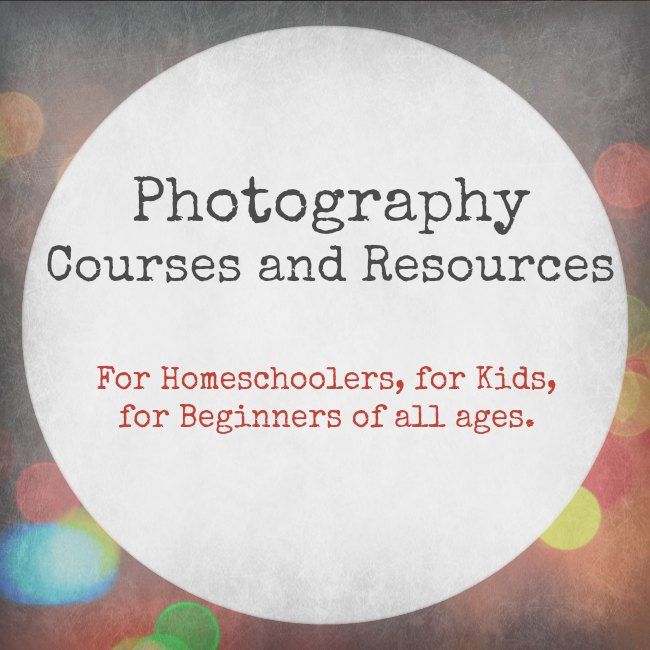
Graduation Etiquette Guide
Financial Aid
Listen to Lorraine SantaLucia’s workshop, “Demystifying Finding Aid for Higher Education.”
GED and Financial Aid
Financial Aid for Colleges
Other Resources
Military
Dual Enrollment
Graduation Q&A
More questions? Check out more questions and answers from “Homeschool Q&A,” the popular feature in HEAV’s weekly e-newsletter, the Virginia Homeschool Update.
High School
Get more high school information and resources here!
Home Educators Association of Virginia
2100 W. Laburnum Avenue
Suite 108-A
Richmond, Virginia 23227
804-278-9200
[email protected]
Facebook Twitter Youtube Instagram Pinterest
How to Graduate a Homeschooled Student
* This post may contain affiliate links or sponsored content.
 *
*Did you like this article? If so, please help by sharing it!
2.3K shares
As your child nears high school age, you find yourself wondering how to graduate a homeschooled student. Great news! The following article will show you that it doesn’t have to be difficult or intimidating.
Once your kids hit middle school or so, the Homeschool Inquisition usually shifts from the age-old socialization question to inquiries such as “how are they going to graduate high school?” and “what about college?”.
The big difference is that the socialization question is usually a non-issue, but graduation and secondary education are vital considerations for families homeschooling high school.
So, what do you need to know about how to graduate a homeschooled student? Following are some essentials based on my experience.
Know the Homeschooling Law
Most importantly, make sure you understand the homeschool laws governing your state.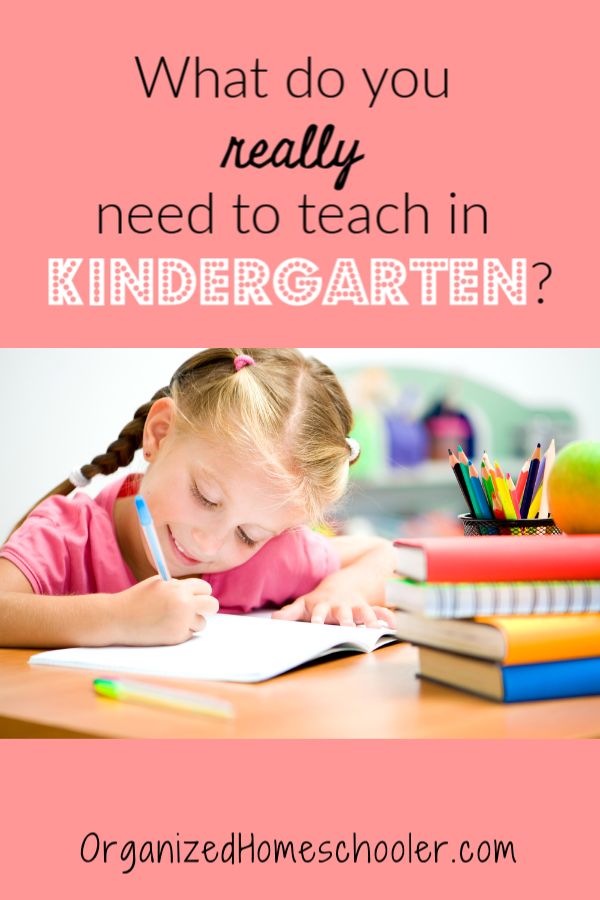 My go-to sites for a breakdown of homeschool laws are HSLDA and the statewide homeschool support website, GHEA, for where I live. If you’re not sure where to find your state’s homeschool support group, HSLDA maintains a listing of homeschool support groups by state.
My go-to sites for a breakdown of homeschool laws are HSLDA and the statewide homeschool support website, GHEA, for where I live. If you’re not sure where to find your state’s homeschool support group, HSLDA maintains a listing of homeschool support groups by state.
Most states don’t maintain guidelines for graduating a homeschooled student. In most cases, the homeschooling parent determines the graduation requirements for your student. Upon completion of those requirements, you issue your graduate a high school diploma.
Some notable exceptions are Pennsylvania, New York, and North Dakota. These states do have specific course requirements. Be sure that you understand with your state’s laws so that you and your student don’t encounter any unpleasant surprises.
Other states, such as Tennessee, offer the option to be a part of an umbrella school. The umbrella school has its graduation requirements. They maintain records and transcripts based on the information submitted by the teaching parent. When the student satisfies the graduation requirements, the umbrella school issues a high school diploma.
They maintain records and transcripts based on the information submitted by the teaching parent. When the student satisfies the graduation requirements, the umbrella school issues a high school diploma.
Both parent-issued and umbrella school diplomas are usually non-accredited. However, most colleges accept them if homeschooled students meet the school’s entrance requirements. Check the school’s homeschool admissions policies on their website.
Consider Your High School Student’s Plans
One smart piece of advice for parents planning to homeschool through high school is, consider your student’s post-graduate plans and choose courses accordingly. If your student has a specific school in mind, check the school’s admissions requirements before your student’s 9th-grade year, and ensure that she is on track to meet them.
Most colleges and universities require high school course basics, such as four years each of English and math; three to four years of science; three years of social studies/history; and two years of foreign language, along with several elective credits.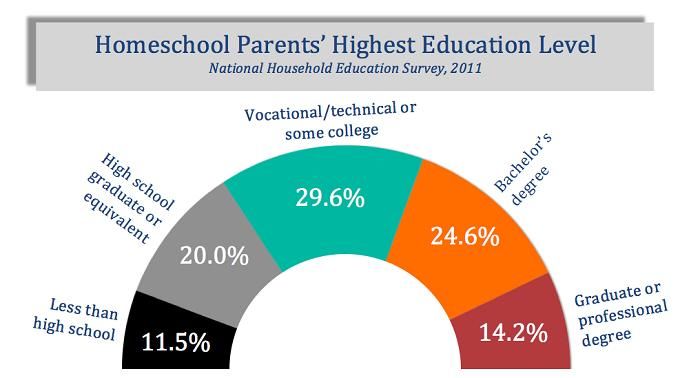
One resource for homeschooling high school that I found helpful was The Homescholar Guide to College Admissions and Scholarships by Lee Binz. The best piece of advice that I took from Lee was this: Even if your student doesn’t plan to attend college, give him a college prep high school education. Teenagers change their minds. And, if your student doesn’t change his mind, the high school education you provide will be the highest level of education he receives.
Even if your student’s plans include a college alternative, such as trade or vocational school, an apprenticeship, or going into the workforce, you want to provide him with a solid high school education.
However, it is essential to realize that you should still tailor a college prep education to your student. Your student’s transcript does not need to look just like a public school student’s for him to get into college or qualify for scholarships.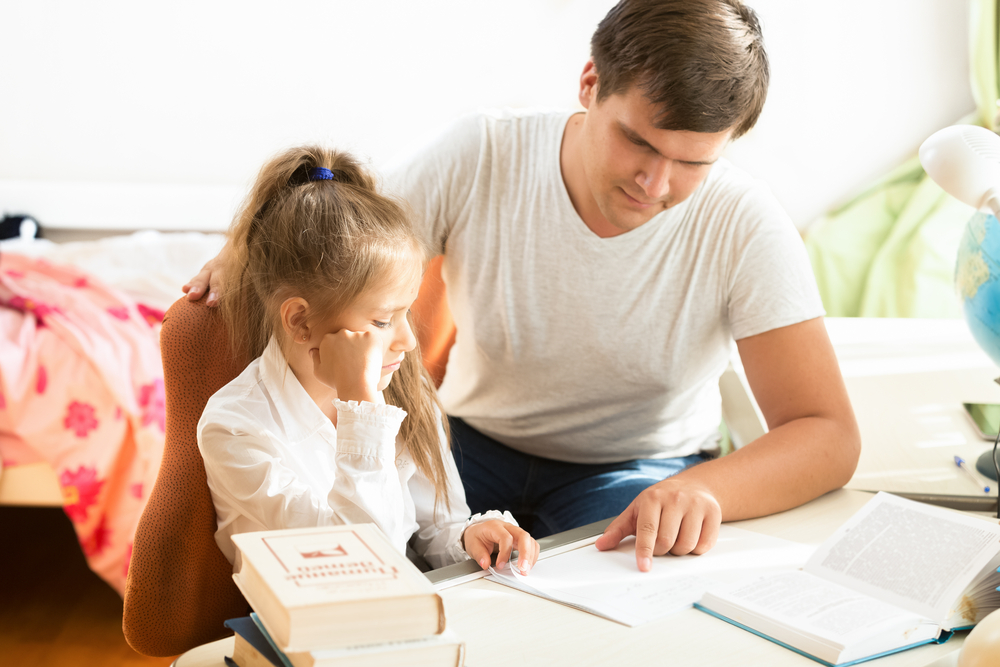 You’re free to offer alternatives to traditional high school courses.
You’re free to offer alternatives to traditional high school courses.
Keep High School Transcripts
Keeping transcripts is a must for college-bound teens. And, you may be surprised to find that other post-secondary education options ask for transcripts.
My oldest attended a private cosmetology school. They only teach cosmetology, so it’s a trade school. We still had to provide a copy of her transcript because it’s in a neighboring state. Their homeschool laws are different from those in Georgia, so they wanted to see what courses she’d taken.
If you’re not part of an umbrella school or other organization that supplies one, there are several options for creating a high school transcript.
- Covenant College offers an excellent – and FREE – high school transcript form. Just scroll down for the link to the PDF or editable version.
- Total Transcript Solution is excellent and takes the fear and confusion out of keeping transcripts.
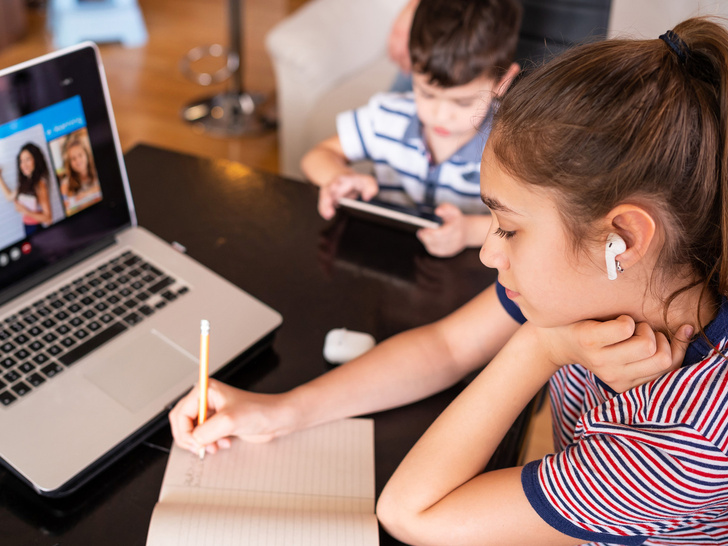
I used to use the original grades and attendance forms from Donna Young’s site to keep track of my kids’ grades for each high school year. Then, I’d transfer their grades to their high school transcripts at the end of each school year.
You really don’t want to forget to update the transcripts at the end of each school year. Trust me on this.
Complete Standardized Testing
If your high school student plans to attend college after graduation, he’ll most likely need to complete the ACT or SAT. If nothing else, he’ll have to take an entrance exam for the specific school he’ll be attending. But what about kids who will be going into the workforce, an apprenticeship, or a trade school?
I chose to have my oldest take the ACT even though she didn’t plan to go to college. People may question my “mommy grades,” but they can’t challenge a standardized test score. Even if they suspect that my kids spent their four years of high school playing video games and posting Facebook status updates (not the case), they can’t argue with their score on a test that most high school graduates take.
Some students perform better on the SAT, while others perform better on the ACT. Depending on your student’s plans, it may be wise to have her take both tests and go with the one on which she scores better.
Also, some schools accept the highest grade in each category of the ACT, not just the composite score. Check with the schools your student is attending to decide if it would be worthwhile for her to take the test more than once.
Apply for Scholarships for Homeschoolers
Guess what. Homeschooled students can get college scholarships just like public and private schooled students. For example, homeschoolers are eligible for the National Merit Scholarship, based on PSAT and NMSQT scores, as long as they take the qualifying test at an approved testing location.
Homeschooled athletes should check out scholarships offered by the National Collegiate Athletic Association (NCAA) and the National Association of Intercollegiate Athletics (NCIA).
Other scholarships for which homeschoolers are eligible include:
- Four annual scholarships offered by Homeschool Legal Defense (Also check out their list of other scholarship opportunities for homeschoolers.)
- Chick-fil-A employee scholarships
- Sonlight scholarships for homeschoolers who use their curriculum
- RiSE Scholarship Foundation for students with ADD, ADHD, or other documented learning disabilities
- Society of Women Engineers for female students pursuing a career in engineering, computer science or engineering technology
For many seasoned homeschool parents, the high school years bring back all the fear and trepidation of the first year of homeschooling. However, by educating yourself and developing a plan, you can successfully navigate the high school years with your homeschooled student.
If you have graduated a homeschooled student, what tips would you add?
You Might Also Like
+ posts
Did you like this article? If so, please help by sharing it!
2.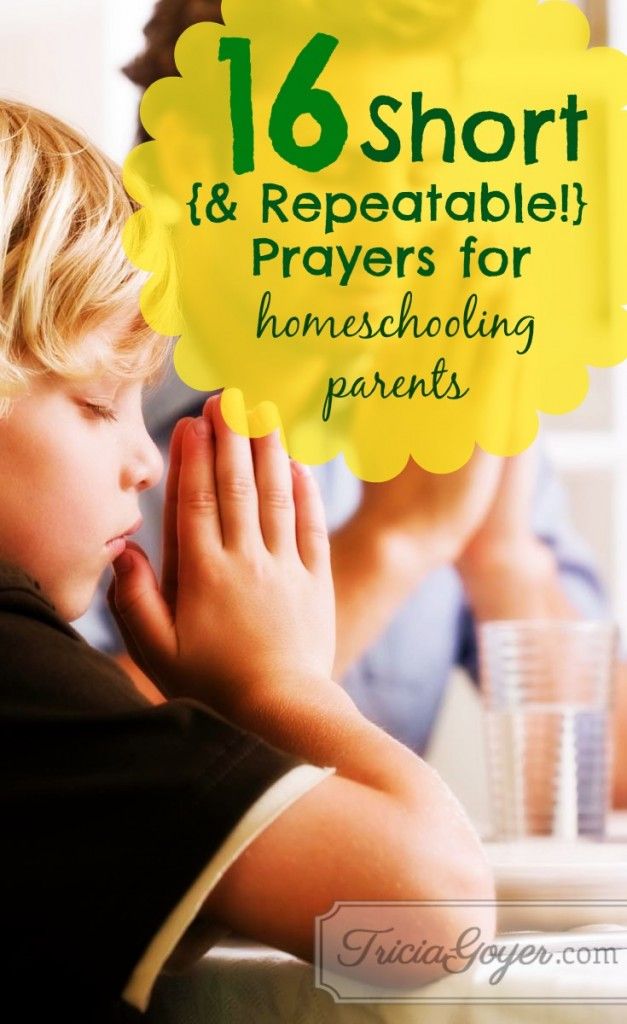 3K shares
3K shares
All about the laws of homeschooling in Russia
A few years ago, teaching a child at home was possible only if he had a confirmed disability. Now parents can transfer their children to home schooling simply at will. The acquisition of knowledge outside the walls of educational institutions is regulated by the law of the Russian Federation No. 273-FZ. A homeschooled child has the right to take exams after grades 9 and 11. This allows him, like all other children, to enter secondary special and higher educational institutions on an equal footing.
Law on Home Education
All rights of students, obligations of parents and educational institutions are described in federal law N 273-FZ, which entered into force on December 29, 2012. When transferring to self-study, you need to know several articles of the law, these are:
- Article 17. It describes the forms of education. According to this article, knowledge can be obtained in the form of self-education or family education.
 Combined acquisition of knowledge is allowed, that is, some subjects can be taken at school, while others can be mastered at home. The student's knowledge is assessed in an educational institution by conducting intermediate and final attestations;
Combined acquisition of knowledge is allowed, that is, some subjects can be taken at school, while others can be mastered at home. The student's knowledge is assessed in an educational institution by conducting intermediate and final attestations; - Article 44. Regulates the rights of parents to take responsibility for the education of their children. After receiving a document on secondary education, the student can already choose the form of education;
- Article 63. Describes the features of obtaining general education.
The Education Act does not set age limits for home schooling. However, parents, if they wish to transfer their child to an alternative option for mastering the school curriculum, need to carefully study this law of the Russian Federation. This will help to understand what they are obliged to give to their child and what assistance the state can provide.
Home education options
Out-of-school education can be chosen based on the child's health, family background and religious beliefs.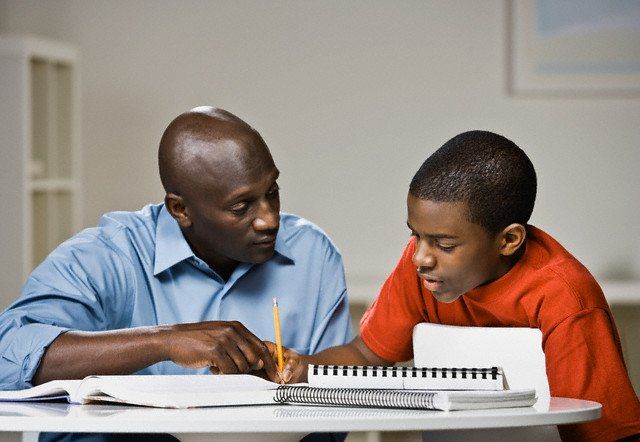
Three forms of home education are recognized in Russia:
- home education;
- family;
- remote.
Each of the options has its own characteristics. Choosing from them, parents should be guided by the interests of the child and his capabilities. It must be remembered that learning at home has not only a number of advantages. He also has certain shortcomings that can adversely affect the student's future life.
The first week of classes is free!
Start studying, and at the end of the trial period, pay for the chosen format!
Features of the home-based option (in case of health problems)
The law on education of the Russian Federation provides for home-based education for those who have a disability. Home education allows you to get a certificate of secondary or general education. Students with disabilities can study either according to the general school curriculum or according to individual plans drawn up taking into account their abilities.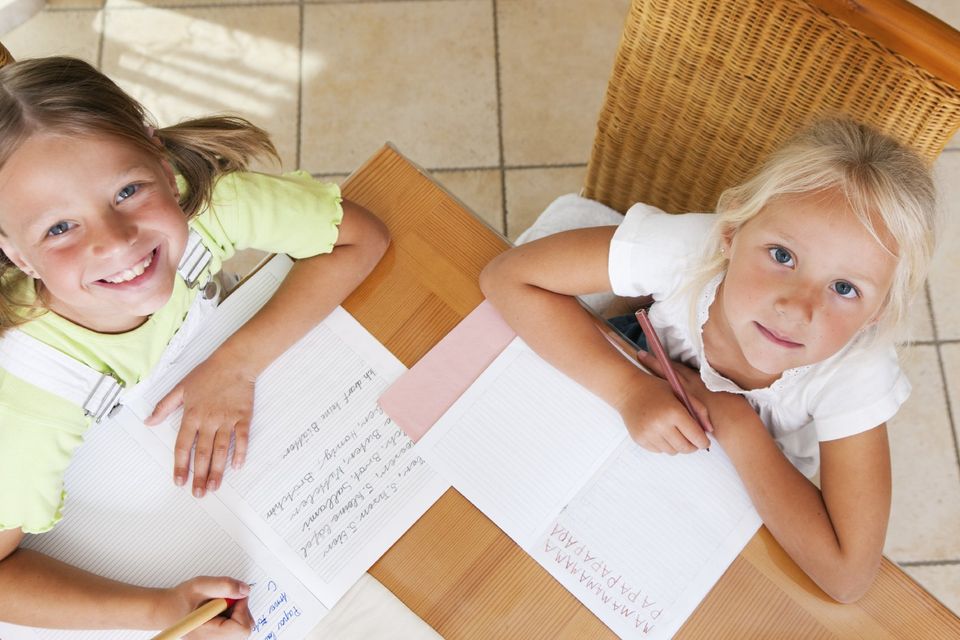 Lessons at home can be shortened to 20-25 minutes or extended to 2 hours. Upon completion of the school curriculum, a certificate of basic or secondary general education is issued. You can read more about organizing homeschooling for children in a letter from the MINISTRY OF EDUCATION OF THE RUSSIAN FEDERATION
Lessons at home can be shortened to 20-25 minutes or extended to 2 hours. Upon completion of the school curriculum, a certificate of basic or secondary general education is issued. You can read more about organizing homeschooling for children in a letter from the MINISTRY OF EDUCATION OF THE RUSSIAN FEDERATION
Steps for registering a child for home schooling
Transferring a child to home schooling is actually not that difficult. However, the process will be simplified if parents know in advance which institutions to contact.
To transfer a child to home schooling, you must do the following:
- Obtain a medical certificate from the local pediatrician stating that the child needs home schooling for health reasons. The pediatrician only issues such a certificate, and the decision is made by the ITU Commission.
- Write an application to the director of the educational institution where the child is studying. If the decision on home education is made before entering the first grade, then the application is written to the head of the city's Department of Education.

- If it is necessary to draw up an individual program, parents or legal representatives, together with the head teacher or principal of the school, select an individual curriculum. It indicates the subjects necessary for the study and their number per week.
- On the basis of a medical certificate and an application, an order is drawn up. It indicates the teachers who will teach the child at home, and the frequency of knowledge testing throughout the year.
- Parents receive a magazine. In it, teachers should note the materials covered and the number of hours allocated, as well as the student's progress. At the end of the academic year, the journal is handed over to an educational institution.
The list of pathologies that give the right to home education, approved by the Ministry of Health of the Russian Federation. Education of children at home should be carried out by the school closest to the place of residence of the family.
An educational institution is obliged:
- to provide schoolchildren with free textbooks and reference books.
 We are talking about the literature that is in the school library;
We are talking about the literature that is in the school library; - to provide consulting assistance, helping to assimilate general education subjects;
- conduct attestations - intermediate and final;
- after the final certification, issue a document on obtaining the appropriate education.
Parents have the right to invite teachers from other schools who can also take part in testing the student's knowledge.
Peculiarities of family education
Not only disabled students can study at home. The Law on Education provides for the opportunity to acquire knowledge independently even if there are no serious health problems. Then there is the issue of family education. Parents can teach the child themselves or invite tutors or teachers, the student comes to school only for intermediate and final certification.
Children are transferred to home self-education for several reasons, the main ones are as follows:
- Frequent absences from school due to professional sports, music.
 Very often, enthusiastic children, due to classes in sports schools, sections, because of competitions and competitions, cannot go to a regular school every day. Home schooling allows them to acquire the necessary knowledge base and receive the appropriate certificate of completion of the 9th or 11th grade.
Very often, enthusiastic children, due to classes in sports schools, sections, because of competitions and competitions, cannot go to a regular school every day. Home schooling allows them to acquire the necessary knowledge base and receive the appropriate certificate of completion of the 9th or 11th grade. - High level of mental abilities. General school programs are designed for children with average knowledge, so peers who are ahead of their classmates in development are not interested in regular lessons. This negatively affects the learning process;
- The nature of the work of the parents, which involves constant travel. Frequent transfers from one school to another have a negative impact not only on academic performance, but also on the mental health of students. Self-education helps to avoid this;
- Religious or ideological reasons that prevent children from being sent to school.
Transferring a healthy child to home schooling, you must first take into account his desire. Many children endure separation from the team very painfully.
Many children endure separation from the team very painfully.
First grade enrollment
Each parent can officially enroll their child in first grade every year. In recent years, there have been innovations that sometimes baffle parents. It happens that the school refuses.
Homeschooling Steps
Homeschooling requires the following:
- Submit an application form to the Department of Education. The Department of Education provides parents with a list of schools where the child can attach for the final exams;
- The school must issue an order for the transfer of the child to the family form of education;
- Parents need to conclude an agreement with an educational institution. This agreement reflects all the duties and rights of both the parents themselves and the student, as well as the school. The document indicates the number of intermediate certifications and their timing, the need to attend practical and laboratory lessons.
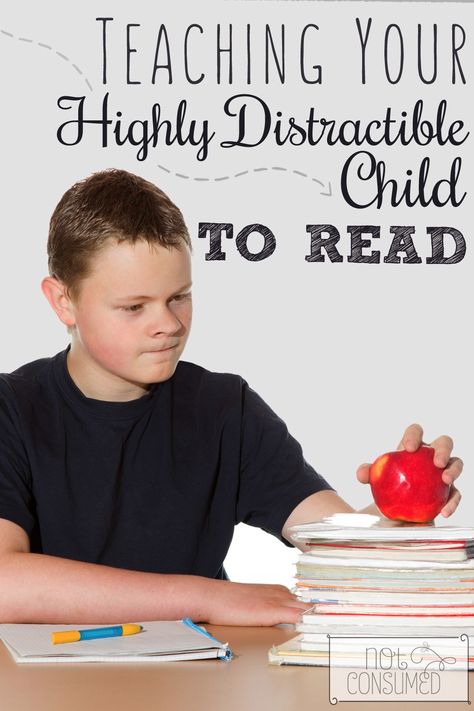
School teachers are not required to come to your home when teaching at home. Parents either provide knowledge themselves, or invite tutors, or look for alternative options. The terms of the final and intermediate exams for a student at home may coincide with the certification of classmates. However, many people find it more convenient to choose an individual plan for assessing knowledge.
For homeschooling in Russia, the law provides:
- the possibility of transferring a child both from school to homeschooling and back in any class;
- providing a student with textbooks, advisory assistance to teachers.
The Law on Education states that parents, at the discretion of the constituent entities of the Russian Federation where the family lives, can receive the money that the state spends on the education of each student as compensation. Specific figures may vary, and in some areas such subsidies are not provided at all, so the amount of money must be specified at the place of residence.
Subscribe to our newsletter
By clicking on the button, you consent to the processing of your personal data.
You have successfully subscribed to our newsletter
You will soon receive a subscription confirmation email
Distance education
Getting school knowledge through the Internet is suitable for those children who can independently control the learning process. Contact with teachers occurs through telecommunication systems or face-to-face. There is practically no unified plan for remote acquisition of knowledge, technical means and special methodological literature. But private institutions are gradually emerging that are ready to work with schoolchildren remotely.
Advantages and disadvantages of home schooling
Teaching a child outside the walls of a traditional school has its pros and cons.
Key benefits of studying at home:
- More comfortable organization of the process: the ability to study at any convenient time and from anywhere, according to your own schedule.
- The ability to obtain knowledge from a variety of sources: textbooks, electronic literature, encyclopedias, video tutorials.
- The opportunity to teach the child in subjects of interest to the extent that he needs.
- More free time for hobbies: music, sports, scientific circles, learning foreign languages, etc.
- Higher efficiency of mastering the topic: classmates do not distract, time is not wasted on solving disciplinary issues.
- Lack of stress from being in a children's team. Not all children, by their nature, adapt well in schools, which negatively affects mental health and general well-being.
With family and distance self-education, the family can travel at any time of the year, as there is no need to take into account the school schedule.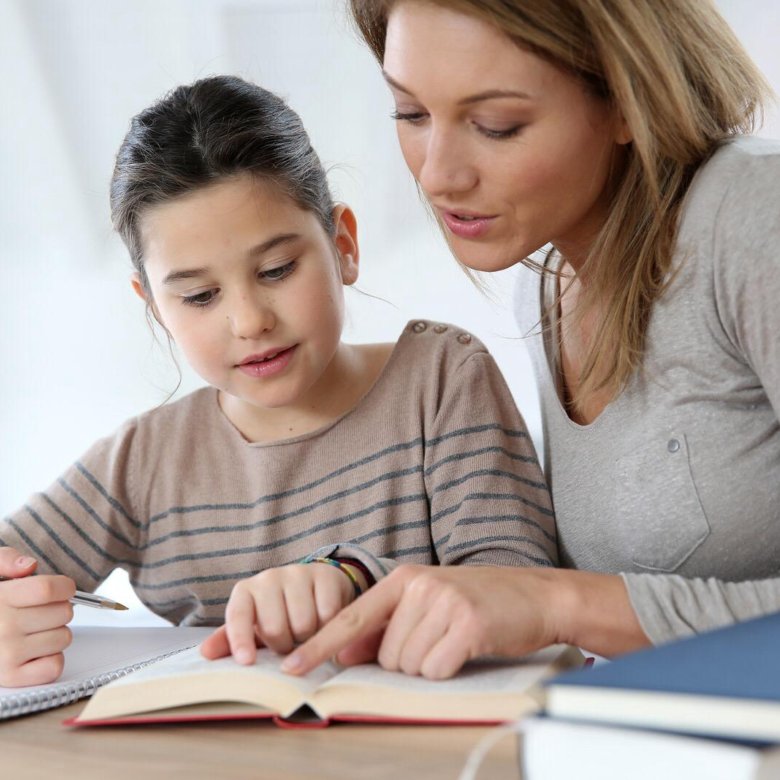
The most obvious disadvantages of learning at home include the lack of social adaptation, especially in the absence of any group activities, as well as the need for parental control.
Amendments to the law on education
Law FZ-No. 273 is not perfect, it is amended almost every year. The main reason for the adjustments being made is the discrepancy between the developments of the law and the real state of education in the Russian Federation.
There are no significant changes in the new amendments regarding secondary and general school education. The only thing that deserves attention is that the government has enshrined such forms of education as family, network, distance learning at the legislative level.
Q&A
Is it possible to go to external studies and complete two classes in one year?
What form of attestation is provided for when transferring to an external study?
What should I do if my child does not complete the external program in one year?
Can adults study externally at the Home School?
types and conditions, how to organize, how certification is carried out, how much does it cost to educate a child at home
Emilia Shchegoleva
transferred her daughter to home schooling
General education, which is given in grades 1-11, is compulsory in Russia. But you can get it both at school and outside of school.
But you can get it both at school and outside of school.
Or you can combine the two formats. This is how my daughter has been studying since 2019, now she is 11 years old. She is enrolled in a private Moscow school and is undergoing certification there, and I teach her myself.
I will tell you what forms of general education there are and what is called home schooling. I will also share my experience of how parents participate in it and how much it can cost.
What is home schooling
Officially, only home schooling is considered home schooling. This is when a child cannot go to school due to health restrictions and teachers themselves come to his home.
But other cases are also called by the people when a student does not attend school at all. For example, distance learning and family learning. So in this article I will also call them home and will talk in detail about each. May the teachers and ministers forgive me.
Types of schooling
Within any school, whether private or public, there are three forms of education: full-time, part-time, and part-time.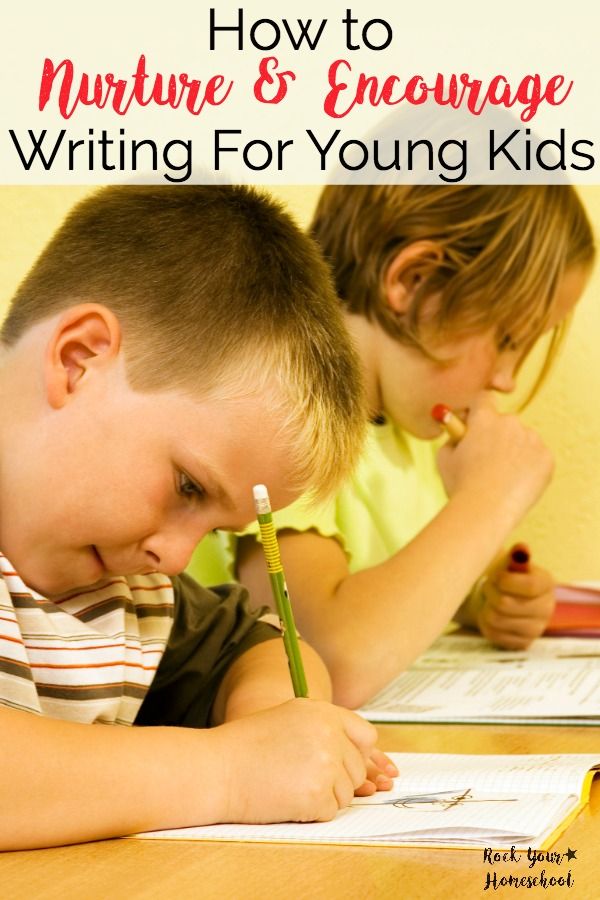 In any of them, the child strictly follows the curriculum and the school, not the parents, is responsible for his knowledge.
In any of them, the child strictly follows the curriculum and the school, not the parents, is responsible for his knowledge.
In full-time form the child goes to school every day. This form has a variety - home-based learning. This is when a student does not attend classes due to health reasons and teachers themselves come to his home.
item 1, 2 part 1 art. 17 273-FZ "On Education"
In the part-time form , the child goes to school 2-4 times a week and only for some subjects, and learns the rest at home. At the same time, he does all his homework and passes tests and exams with the class.
And with the correspondence form , the child appears at school once every few months. For example, to analyze the most difficult topics with the teacher. The rest of the time, he studies at home using school textbooks, and passes homework and exams in person or via the Internet.
/prava/school/
Parental rights at school
Any of these forms can be applied to distance learning.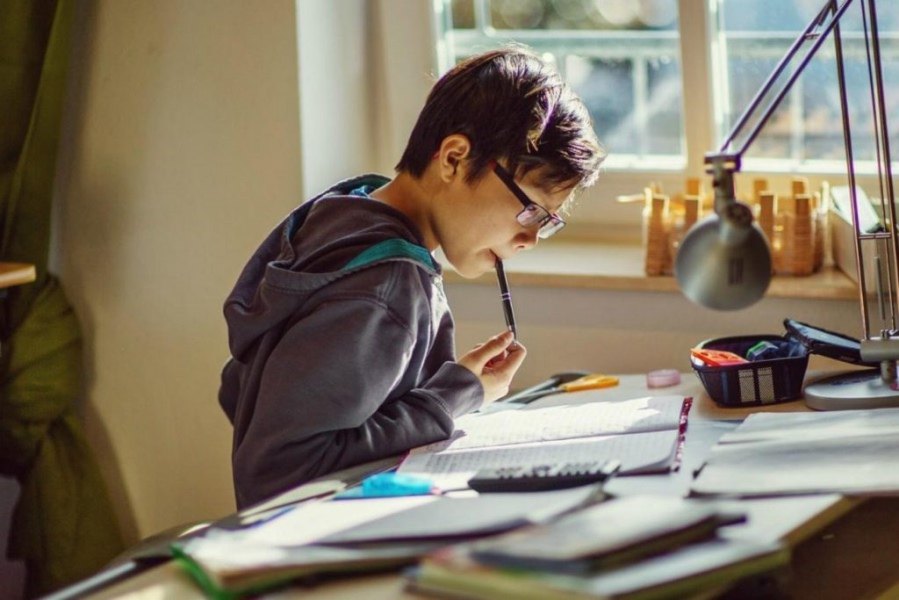 This is when teachers conduct online lessons, and children take all homework and tests via the Internet.
This is when teachers conduct online lessons, and children take all homework and tests via the Internet.
Types of education outside of school
Out-of-school education is family and independent education. The latter is also called self-education.
In the family format, the family is responsible for the knowledge of the child. Until the ninth grade, he may not be attached to any school, not do any homework and not take tests. In the ninth, you will have to join in order to pass the OGE and receive a certificate.
And you can join right away - that's what we did. But my daughter’s knowledge during the year is still controlled only by me, and at school she is certified twice a year.
With self-study everything is the same, but both the parents and the child are responsible for the knowledge of the child - equally. But it is possible only for students who have already completed the ninth grade. Therefore, I will not mention him further.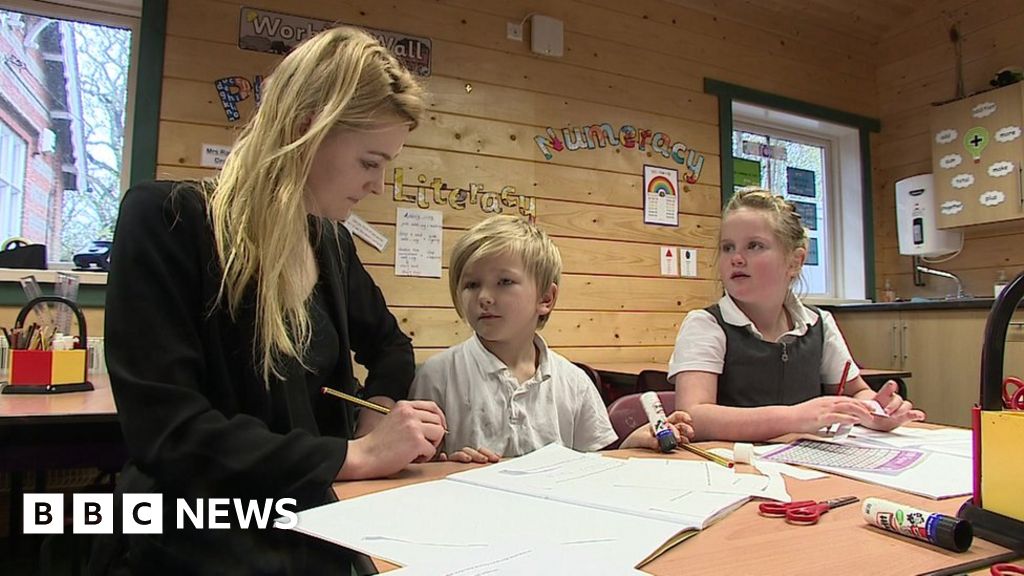
Part 3 Art. 34 FZ-273 "On Education"
Conditions for learning at home
In this article I will talk about home, distance and family learning. This is what they most often call domestic.
To be eligible for home schooling, a child must have health limitations that prevent them from going to school. For example, a severe degree of blood incoagulability or a violation of intellectual development, when the student does not control his behavior. Or if the child has undergone a major operation and less than a year has passed after it. Let's say if he was treated for retinal breaks.
All diagnoses that qualify for home-based education
Distance learning also has a condition - the school you have chosen must use electronic technology. But according to the law, this is her right, not her duty. And if your school does not have them, you will not force teachers to conduct online lessons specifically for your child. You will have to transfer him to another school.
Part 2 16 273-FZ "On Education"
There are no special conditions to transfer a child to family education - the desire of the parents is enough. Otherwise, it all depends on whether the child is attached to some school and what the rules are.
What the law says about homeschooling
All types of education that are popularly called homeschooling are regulated by the federal law "On Education". And part of the provisions of this law is detailed by the Letter of the Ministry of Education and Science of November 15, 2013 No. NT-1139/08 - the main regulatory document on family education. If you are thinking about your child studying at home, it is advisable to read it in full.
In the meantime, here is the most important of the law.
Parents are required to provide their child with a general education. That is, taking him out of school and not teaching him at all is illegal. For this, a warning and a fine of 100-500 R.
Part 4 of Art.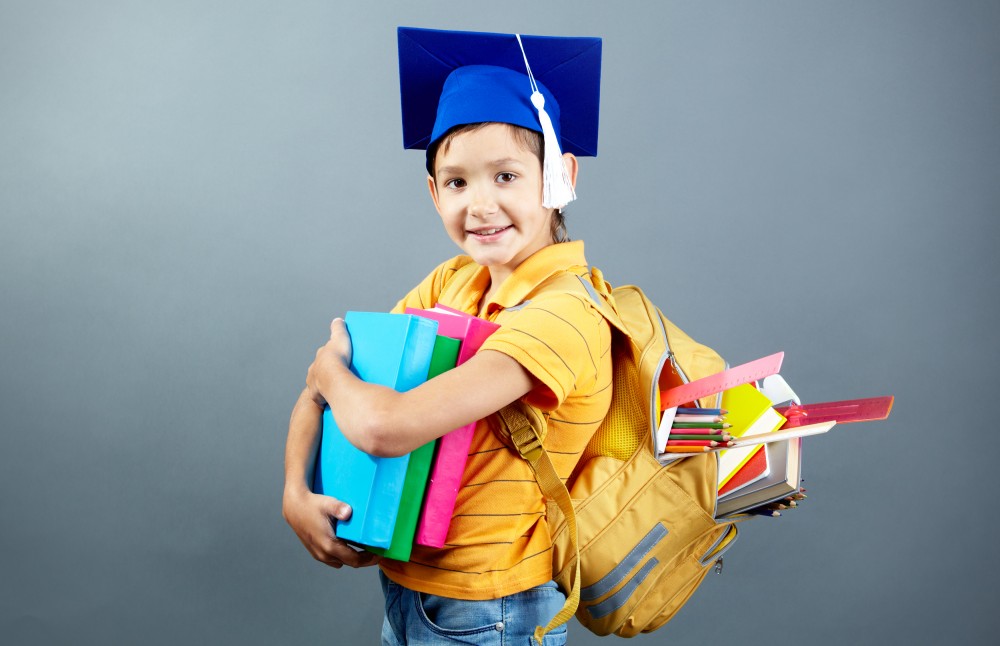 44 273-FZ "On Education"
44 273-FZ "On Education"
Part 1 Art. 5.35 of the Code of Administrative Offenses of the Russian Federation
Parents have the right to choose the form of education for their child. Suppose, if he does not like it at home, he can always return to the school at the place of residence - to the full-time form. And the school principal has no right to interfere with this.
item 1, 2 part 1 art. 44 273-FZ "On education"
Family education is just as legal as home or remote school. If you want to transfer your child to it, no one can stop you: neither the teacher, nor the director, nor the city education department.
Part 3 Art. 17 273-FZ "On Education"
With a family form, a child has the right to be certified at a public school at the place of residence: take tests, exams and receive grades there. Even if you want to attach to the school just for the sake of it, you have no right to refuse.
If a homeschooled child is attached to a school, they can use the school library, sports field and gym. And also participate in olympiads, sports competitions and scientific conferences on behalf of the school.
And also participate in olympiads, sports competitions and scientific conferences on behalf of the school.
p. 20, 21, 22 h. 1 art. 34 273-FZ “On Education”
You can’t just pick up and pick up a child from school. If you choose homeschooling, you will need to report this to your local education department. They keep records of all children who are currently required to receive general education.
Part 5 63 273-FZ "On Education"
If the child is not attached to any school, and you do not report family education, you are breaking the law.
At home schooling, you can be certified externally. Let's say that in a year a child completed the program of two classes at once - for example, the seventh and eighth. And in terms of age, it should only go to the eighth. If he is attached to the school and passes all the tests for the eighth grade, he will be transferred to the ninth grade, regardless of age.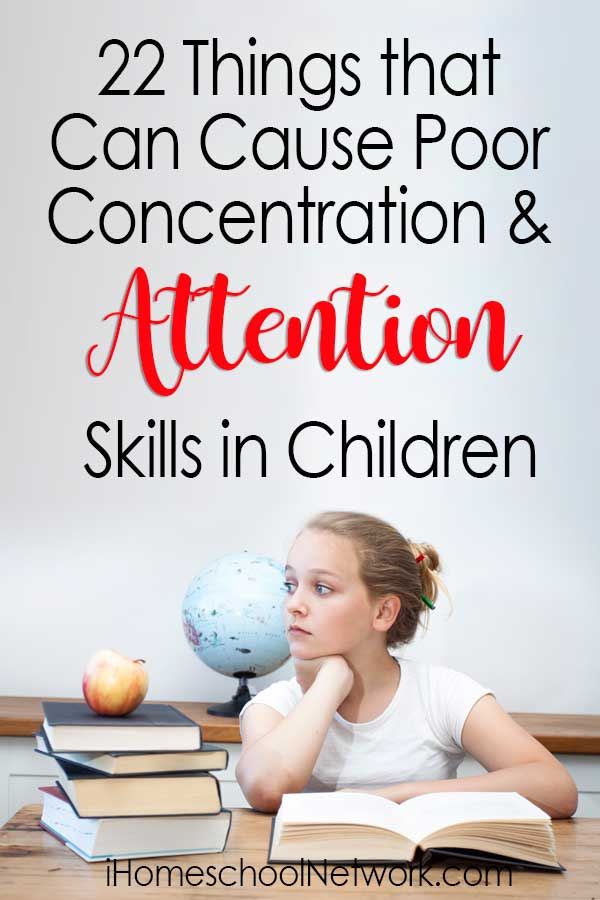
Part 3 34 273-FZ "On Education"
A homeschooled child attached to a school may be left for the second year. This will definitely happen if he has two academic debts or more: for example, he did not write an annual test in two subjects and did not take exams in them. Or got two for them.
Art. 58 273-FZ "On Education"
If a student has one debt, he will be transferred to the next class conditionally. That is, he will be able to pass the program of this class, but he will be in debt.
During the year, the student will have to retake the subject. If he gets two again, he will return to the previous class.
What is home education
What is the point. A home-schooled child is assigned to a school at the place of residence and to a specific class. He is taught by school teachers - at his home after their lessons or via the Internet. And he passes all certifications and tests according to the school schedule.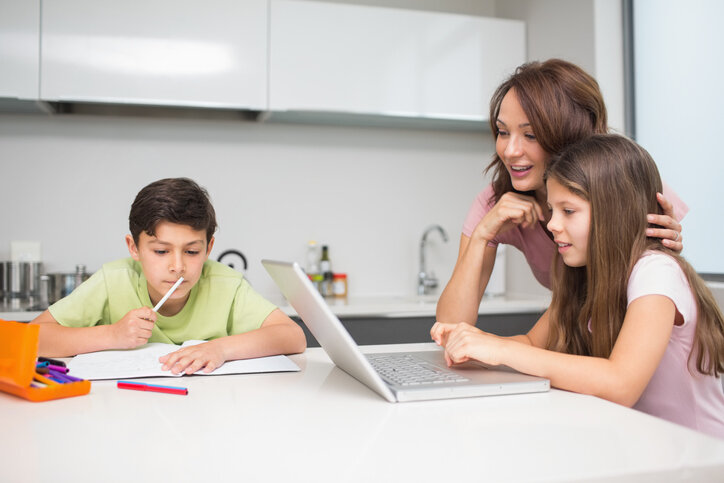
How to transfer. Different regions may have different rules. It is better to find them out in the city education department. And in Moscow, you need to get a referral from the attending physician for a medical or clinical expert commission (CEC). It is organized in one of the city clinics or hospitals. There, specialists will examine the child and study the results of his tests and examinations. Based on this, it will be decided whether he can attend school in person. If not, they will issue a conclusion that he is recommended to study at home.
Then you need to go to the director of the school to which the child is attached, bring the conclusion, your passport and the birth certificate or passport of the child. And write an application to be transferred to a home-based format.
Application template for transfer to home schooling
The school administration will conclude an agreement with you on the transfer to home schooling, and in Moscow they will draw up an act about this. An individual study plan and schedule will be attached to it. You can accept them or correct them together with the head teacher.
An individual study plan and schedule will be attached to it. You can accept them or correct them together with the head teacher.
clause 2.2 of the Order, approved By Order No. 281
of April 18, 2014, the administration will appoint teachers who will visit the child. Moreover, the same teacher can teach several disciplines at once. This is normal: for example, diplomas of teachers of mathematics usually have an additional specialization - physics, and vice versa. A geography teacher can teach biology, and a historian can teach social studies.
Advantages of home education. Illness does not prevent a child from receiving an education. And the school adapts to his needs, provides free textbooks and teachers.
Disadvantages of home education. The list of diseases includes only the most acute conditions. If the child is sick, but not seriously, he will have to go to school with everyone.
In home schooling, children have little contact with their peers.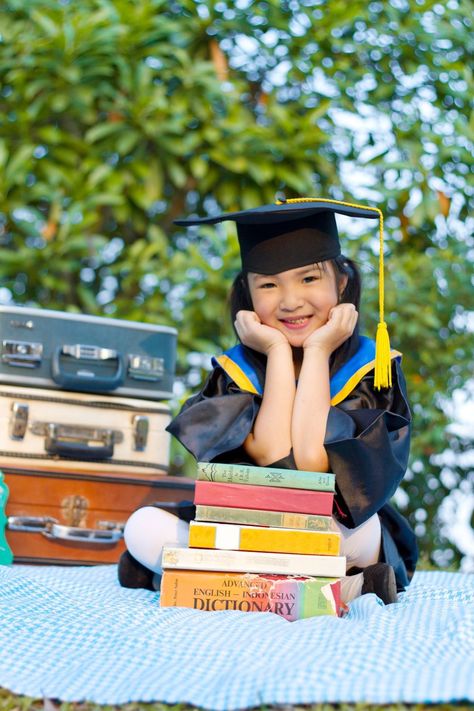 They are also not taught fine arts, music, life safety and technology, although some might like these subjects.
They are also not taught fine arts, music, life safety and technology, although some might like these subjects.
Teachers often lack the qualifications to approach children with disabilities.
What is family education
What's the point. Family education is similar to home education, only the responsibility for the child's knowledge lies with the parents, not the school. They can teach it themselves, hire tutors, or enroll in a private online school.
There are two formats of family education - homeschooling and unschooling.
Homeschooling is when a student is attached to a school: private or public at the place of residence. He takes control, tests and exams there - either in person or remotely. But at the same time, he does not attend classes.
/home-school/
How I transitioned my children to home schooling
In general, the child follows the program of his school, but parents can change it a little. For example, do not engage in fine arts or technology with a child. Or in-depth study of subjects that are interesting.
For example, do not engage in fine arts or technology with a child. Or in-depth study of subjects that are interesting.
For example, my sixth grade daughter is enrolled in the private International School of Tomorrow. From there they sent me a list of twelve disciplines that I have to teach her:
- Russian language.
- Literature.
- Foreign language.
- Mathematics.
- History.
- Social science.
- Geography.
- Biology.
- Music.
- ISO.
- Technology, or labor.
- Physical education.
I myself made the schedule and teach my daughter everything except physical education. We do not throw away other items, otherwise the daughter will have problems with certification. But we are mastering geography and biology in depth.
Unschooling is when a child is not attached to any school, does not follow any programs, and the parents themselves decide what to teach them.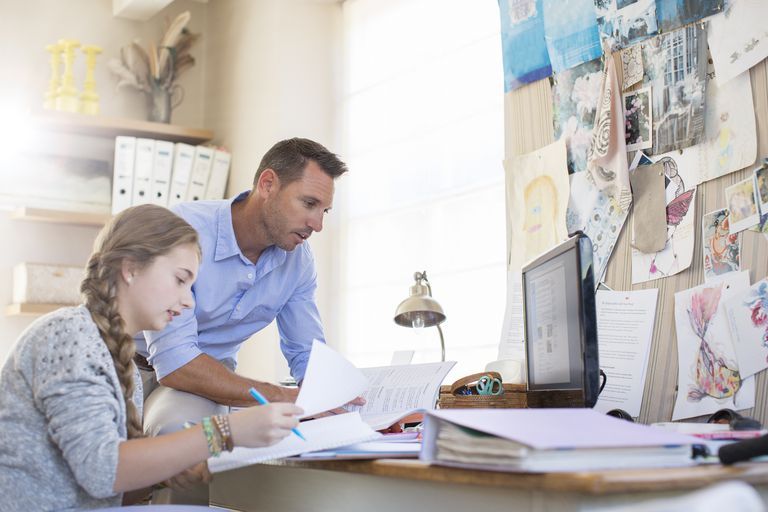
This format is possible up to the ninth grade. Then the child will have to attach himself to some school and take the OGE there in Russian, mathematics and two subjects to choose from. Without this, they will not give a certificate.
p. 20 of the Order, approved. By order of the Ministry of Education dated August 30, 2013 No. 1015
But for admission to the OGE, you need to pass an intermediate certification for the ninth grade at the school. In a word, in order to pass the OGE and get a certificate, you still have to attach yourself to a school.
Family education is suitable for: children who do not have time to go to school. For example, professional athletes or artists. It is also suitable for children with poor health or those who do not keep up with their peers in the class. And to students who are in conflict with classmates or teachers.
Plus, this is an option for families who travel a lot or live abroad, but want their child to have a Russian certificate.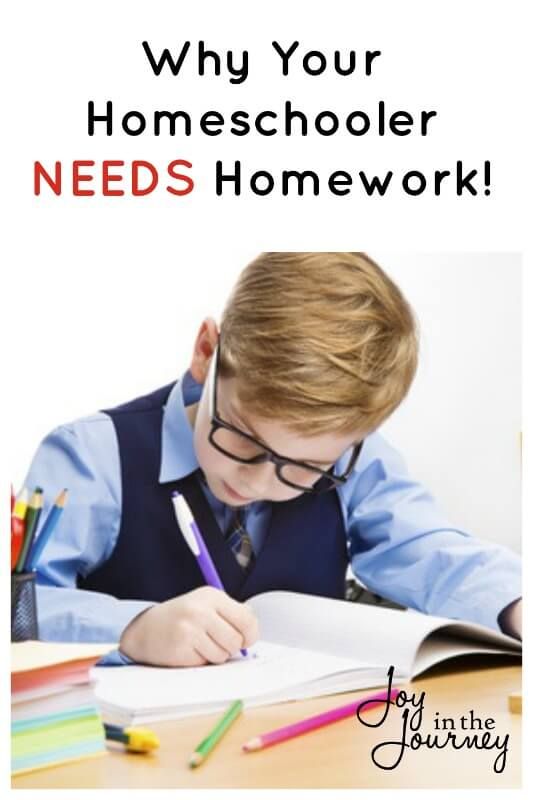 To some extent it was the same with us. We chose family education because our daughter has health problems - they complicate full-time studies. And in 2019In the same year, we also went to spend the winter in Georgia and stayed there for almost a year. Thanks to family education, this did not affect her daughter's studies.
To some extent it was the same with us. We chose family education because our daughter has health problems - they complicate full-time studies. And in 2019In the same year, we also went to spend the winter in Georgia and stayed there for almost a year. Thanks to family education, this did not affect her daughter's studies.
How to transfer. If you want your child to be certified at the previous school, you need to conclude an agreement for family education with the school administration. It will spell out all the conditions for consultations, certifications, use of the library and participation in school events. After that, inform the city education department that the child is now studying at home.
/list/alternative-schools/
Where to go to study if you don’t like the school: 9 family schools in Moscow
If you want to attach your child to another school, in the former one you need to write an application addressed to the director and ask to expel the child. You will be given a package of documents: a personal file of the child, a report card and a medical card.
You will be given a package of documents: a personal file of the child, a report card and a medical card.
Then you need to take them to a new school and conclude an agreement with it: in a private school - for distance learning, and in a public school - for family education. And do not forget to report this to the education department. This is what we did - formally, the daughter studies in absentia at a private school, but in fact she only passes certifications there.
If you do not want to attach your child to any school, you need to write an application for expulsion at the former school. And be sure to report this to the education department at the place of residence. Contacts are always available on the website of the city administration.
Sample Homestay Transfer NoticePDF, 127KB
Notice can be taken in person or sent by certified mail. The letter is relevant if the child lives in one city, but is registered in another.
Sample contract with a school that allows my daughter to study on a family basis and pass certification remotely at a private school Advantages of family education. The main plus is maximum freedom: parents themselves decide what and how to teach their child, and choose a school for certification. They also take into account the interests of the child: they delve into what he likes, and the rest is analyzed in less detail. For example, my daughter has a hard time with languages. We focus on English, and we study French in an easy mode.
The main plus is maximum freedom: parents themselves decide what and how to teach their child, and choose a school for certification. They also take into account the interests of the child: they delve into what he likes, and the rest is analyzed in less detail. For example, my daughter has a hard time with languages. We focus on English, and we study French in an easy mode.
Another child studies at a convenient schedule and pace. For example, I only teach my daughter until lunch so that the rest of the day is free. She likes that there are no early rises, rush, fuss and homework. She gets enough sleep, can do hobbies and travels with us. Plus, it is protected from school bullying.
Disadvantages of family education. Family education in Russia is still new. Many of our acquaintances do not understand what it is and condemn us for taking our daughter away from school. It is unpleasant.
Not all parents have the time and knowledge to teach their child themselves. It takes us a lot of time and effort to do this. Although there are no problems with teaching itself: I have a pedagogical education and a diploma in cartography, and my husband is a mathematician and knows seven languages.
It takes us a lot of time and effort to do this. Although there are no problems with teaching itself: I have a pedagogical education and a diploma in cartography, and my husband is a mathematician and knows seven languages.
Discipline is important in studies, and not every child can break away from personal affairs and sit down for a lesson on time. This also takes effort. For example, I myself made a schedule for my daughter for all weekdays. She does not get up on an alarm clock, but sleeps as long as she wants, after that she has breakfast and sometimes takes a short walk. But then we sit down for lessons.
/kontrol-detei/
How we study remotely for the second year and have not gone crazy yet
There is a way out that will remove all the disadvantages of family education: when unschooling, hire tutors, and when homeschooling, enroll in a private family school. In such schools, classes are often held offline, but in the presence of parents.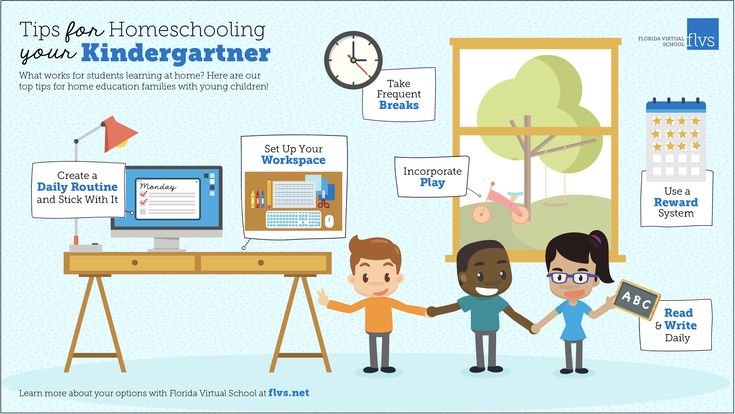 There are a maximum of ten people in classes, and teachers conduct lessons outside the box: in the format of games, interesting experiments or discussions.
There are a maximum of ten people in classes, and teachers conduct lessons outside the box: in the format of games, interesting experiments or discussions.
But both tutors and family schools are expensive. I will tell you more about prices later.
What is distance learning
What is the point. The child studies online - in a private school or in a public one. If he is in family school and studies with online tutors, this can also be considered a distance format.
At school, the child listens to audio and video lectures, and sometimes participates in webinars. In private schools, assessments are also held remotely, while in public schools they are full-time. Even at school, the child has a schedule and he clearly follows the school curriculum. And parents can't change it.
You can change the program only for family distance learning. To do this, you can discuss the curriculum with the online tutor and ask them to follow it clearly.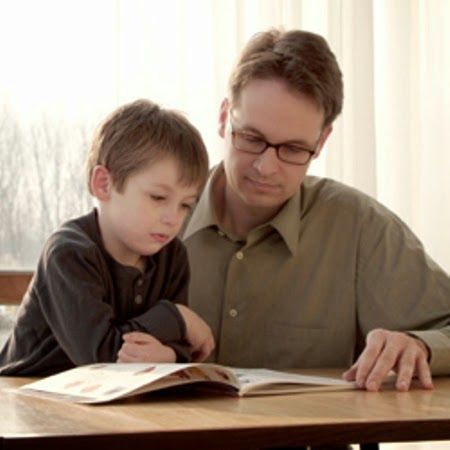
/list/online-schooling/
If your child likes to study remotely: 10 online schools
Suitable for whom. Families where parents do not have the time or knowledge to understand the program and teach the child themselves. This is also a way out if you often move or if offline schools are closed for quarantine.
How to transfer. If the child is studying in a public school, you need to write an application addressed to the principal for transfer to distance learning. Or drop out of a school where it is impossible and conclude an agreement with a new one.
Sample application for transfer to distance learning
Advantages of distance learning. Schools have a ready-made curriculum, teachers and a knowledge control system. And if the child is not attached to the school, a tutor will take care of them. Parents don't need to worry about this.
Private schools usually have flexible schedules and a student can listen to a lesson at any time. This allows him to get enough sleep, plan his day himself and travel with his parents.
This allows him to get enough sleep, plan his day himself and travel with his parents.
Bullying is also unlikely: students do not cross paths between classes and may not see each other at all.
Disadvantages of distance learning. Not all public schools have an online format. And private ones are usually expensive.
In addition, private schools sometimes follow unique author's programs - I tell you why this is a minus.
Home education programs
I have already mentioned that with unschooling, parents can develop a program themselves and teach their child according to it. In other cases, you will have to follow the program of the school to which it is attached.
Standard. Each school has the right to draw up its own curriculum. But public schools are guided by the Federal State Educational Standards - Federal State Educational Standards. There is a list of subjects that need to be studied in grades 1-4, 5-8 and 9-11, the number of lessons for each discipline, the duration of the academic year, the requirements for results and the timing of certification.
Part 7 12 FZ-273 "On Education"
In general, if a child is attached to a public school, then he will study according to the programs of the Federal State Educational Standard. And in family education, parents will have to monitor whether he is falling behind in these programs, otherwise there will be problems with certification.
The same story with private schools that have passed state accreditation. It confirms that the program of these schools also complies with the Federal State Educational Standard, and gives them the right not only to teach, but also to certify students and issue certificates to them.
My daughter's school is also accredited. It was important for me that she pass the GEF certification: I think this makes the assessment of knowledge more objective.
You can find out if a private school is accredited in the register of Rosobrnadzor. In addition, schools usually post accreditation documents on their websites in the "Documents" or "About us" section.
The largest accredited online schools:
International School of Tomorrow,
IANO,
Our Penates
Alternative, or copyright, programs are practiced by non-accredited private schools. For example, Montessori or Waldorf schools - where children learn about the world through creativity: drawings, crafts made from natural materials, songs and dances.
The largest Waldorf schools:
"Scientist Cat",
"A. Pinsky School",
"Family Way"
The problem is that with author's programs, the development of the child sometimes turns out to be one-sided.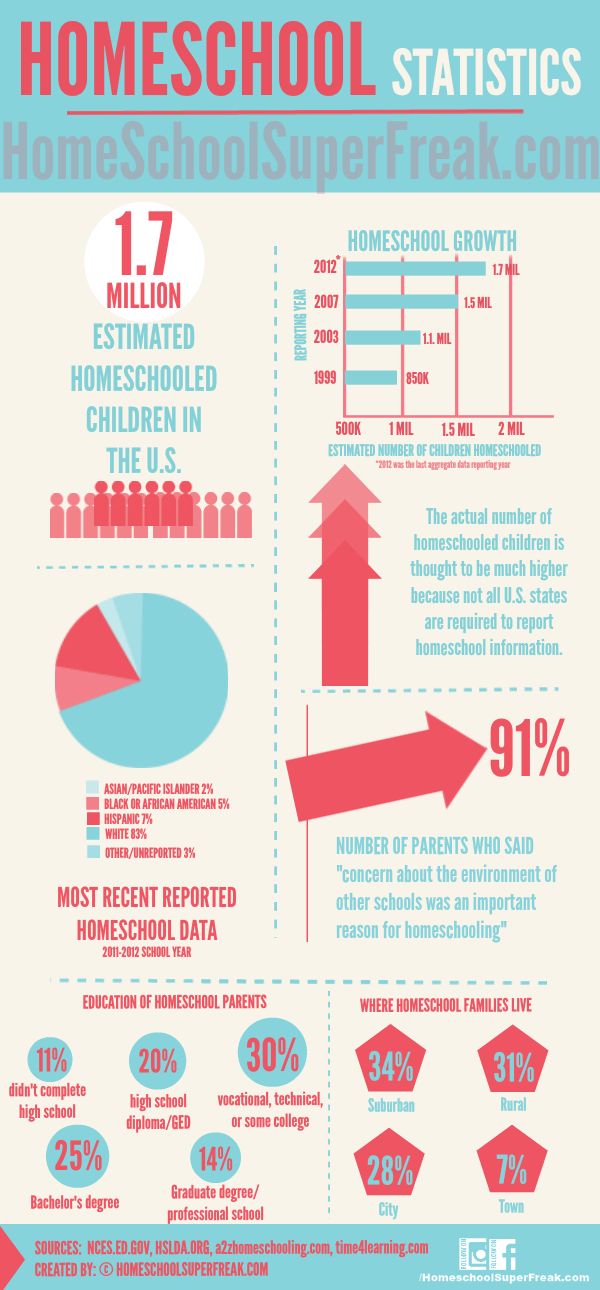 That's what happened with us. In 2017, before switching to family education, my daughter was in the second grade of a private Montessori school. It was full-time, but I will tell you about it anyway: this method is also taught remotely.
That's what happened with us. In 2017, before switching to family education, my daughter was in the second grade of a private Montessori school. It was full-time, but I will tell you about it anyway: this method is also taught remotely.
I liked that the material was presented in a creative way: children were shown experiments and interesting videos, played educational games. My daughter was interested, and she did a lot on her own.
But by the end of the school year, I noticed big gaps in her knowledge: my daughter hardly knew how to divide in a column, and she made many mistakes when writing. Moreover, they concerned the simplest rules of the Russian language. I had to pick her up from this school and hire tutors for the whole summer.
Assessment: how knowledge is tested
Parents check knowledge during unschooling. The same is true if the child is attached to an unaccredited school. In these cases, in the ninth grade, you will have to attach to a public school or an accredited private school in order to get admission to the OGE.
An accredited school, private or public, must take exams at least at the end of each school year. Without this, you can't even move from class to class. And some schools require mini-exams at the end of each quarter, trimester or semester.
In public schools, accreditation is free, but in private schools you have to pay extra for it. For example, my daughter is certified in a private school twice a year - in December and in May. We pay 5,000 rubles for each assessment.
Tests are sent to my daughter in all subjects and the deadline for passing is set in about three weeks. We make a schedule and pass these tests one by one.
/list/robotics-for-children/
Assemble the first robot and program Lego: where they will teach the basics of robotics
The tasks in the tests are quite understandable, and sometimes even interesting. They never go beyond the studied material, but some come across difficult. Therefore, a week before receiving the tests, my daughter and I repeat all the material that we have covered over the year.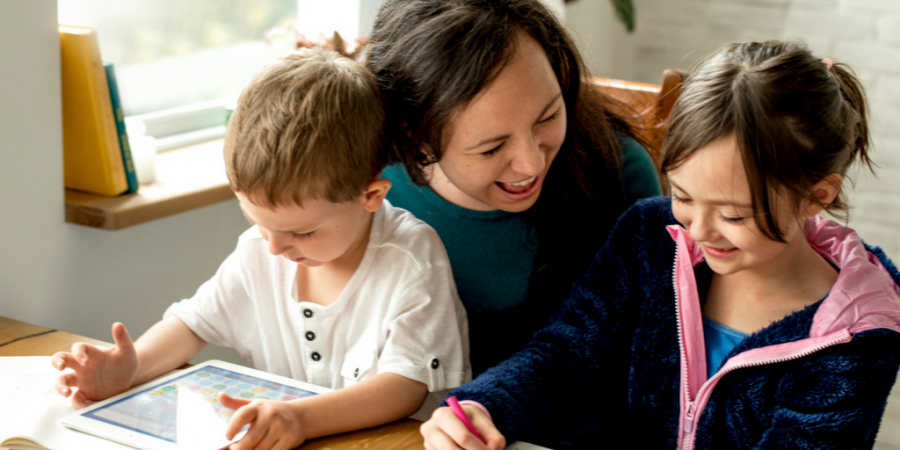
Daughter solves tests herself. But mathematics and French are hard for her, and in these subjects we sometimes help her.
After a couple of weeks, I get the results and teachers' comments about mistakes by e-mail. I know that if we don't turn in the paper on time or our daughter gets two, we'll have to retake it - like in a public school. But so far we have not had this: our daughter is studying for four and five.
Teachers explain in detail where the daughter went wrong and what was the correct answerHow much does homeschooling cost
Study supplies. When a child studies at home, there is no need to spend money on school uniforms, change of shoes and fees for the needs of the class. But you still can't do without textbooks and stationery.
If the child is enrolled in an offline school, textbooks can be borrowed free of charge from the library. In other cases, they will have to be bought or downloaded electronically. Plus, the child will need atlases, contour maps and workbooks.
One textbook costs 700-900 R, and some also come in two parts. Atlas and contour maps are sold for 400-500 R each. If I bought only new ones, then I would give at least 10,000 R for them per year. But I was lucky: some of the textbooks are given to us by friends. I buy another part on Avito, each costs 200-300 R there. And I download something for free on the V class website.
/school-stats/
How much does it cost to send a child to school? Of the additional, but not mandatory, we also bought a globe and a microscope: my daughter especially loves biology and geography. I found both on Avito.
I spent 9300 R on school supplies in the sixth grade
| What did it take | Where did you get | How much did you spend |
|---|---|---|
| Microscope | "Avito" | 3500 R |
| Biology, history and geography workbooks | "Read-city" | 1500 R |
| Painting accessories | Convenience store | 1000 Р |
| Notebooks | Ozone | 1000 Р |
| Reader in Literature | "Read-city" | 700 Р |
| Globe | "Avito" | 500 R |
| Writing instruments | Ozone | 500 R |
| Russian language workbook | Avito | 300 R |
| Markers | Ozone | 300 R |
| Textbooks | Given by friends | 0 R |
microscope
Where I took
Avito
How much spent
3500 R
Biology, History and Geography
where it took
,“Read-Gorod”
as much spent
1500 r
for drawing
Where I took
Store by house
How much spent
1000 R
Notebooks
where I took
“OZON”
How much was spent
1000 r. Reading City0002 where I took
Reading City0002 where I took
Avito
How much spent
500 R
Written accessories
Where took
“Ozone”
How much spent
9000 500 R 9000 Workbook in the Russian language 9000 9000 9000 9000 9000 9000 Where did you getAvito
How much did you spend
300 R
Markers
Where did you get
Ozone
How much did you spendTextbooks Source: Avito The new microscope cost about 5600 R, and I bought the same one at Avito for 3500 R. Source: Ozon
Prices in private online schools are very different. Studying will be cheaper if the child listens only to recorded lectures and does not receive feedback from the teacher. For example, in the "Internet Lesson" school, this format is called "Express" and one month of training costs 900 R. And if you add teacher consultations to the recorded lectures, then the cost will increase to 3000 R per month.
If the child studies according to an individual program, it will also be more expensive. In Online School No. 1, standard programs cost 1,900-12,500 R per month, and individual programs cost 25,500 R.
What to do if you don't like the school: 6 alternatives
at the International School of Tomorrow. If she attended online classes with teachers, sixth grade education would cost 6,000 R per month, or 54,000 R per year. But I teach it myself and pay only for certifications - 10,000 R per year.
There are three tuition fees in BIT virtual school. The cheapest one is when the child simply gets access to the recorded lectures, and the computer checks his assignments. Teacher-assisted education costs four times as much The older the child, the more expensive it is to attend an online school. These are the rates at the school where we study Prices at family schools. Family schools are not formally considered schools. They do not have licenses for educational activities and accreditation.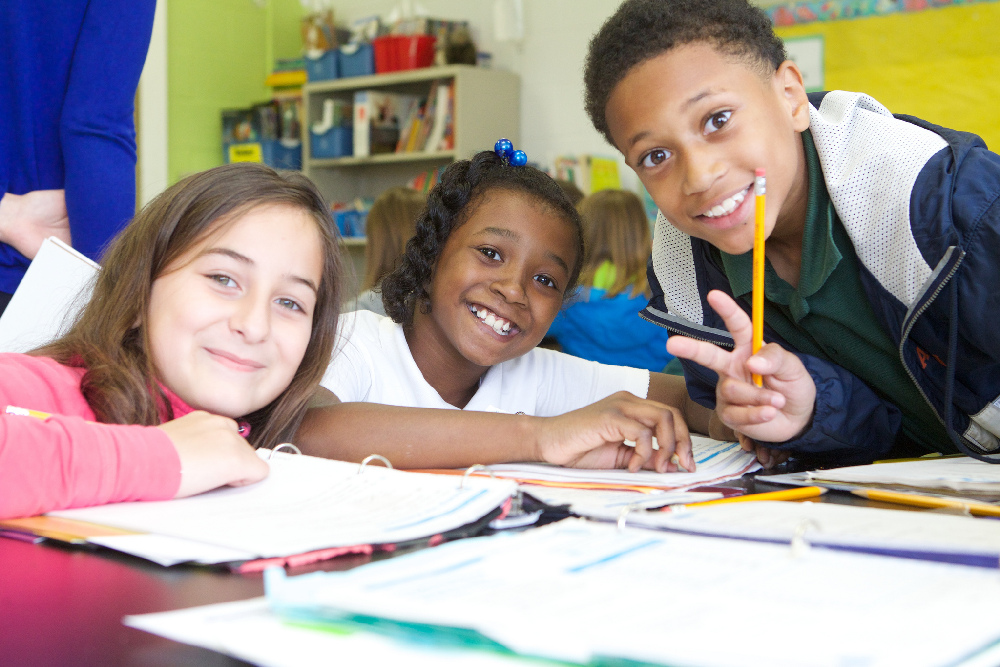 In order for a child to study in such a school, it is necessary to transfer him to family education.
In order for a child to study in such a school, it is necessary to transfer him to family education.
But children can study there in the presence of their parents. And the lessons are held in a game form and not every day, but a couple of times a week. Much attention is paid to creativity, research, practical experience. Travelers who tell children about different countries can be invited to geography classes. And in literature - writers.
In Moscow, education in such schools costs an average of 30,000 R per month. It includes three meals a day and walks with children, as in kindergarten. There are cheaper options though. Let's say the school "Source of Knowledge" can be visited either once or twice a week. In the first case, the month will cost 12,000 R, and in the second, 20,000 R.
/perevod/
How to transfer a child to another school
And there are expensive schools. For example, at Reggioschool, classes are held five days a week and training costs 60,000 R per month.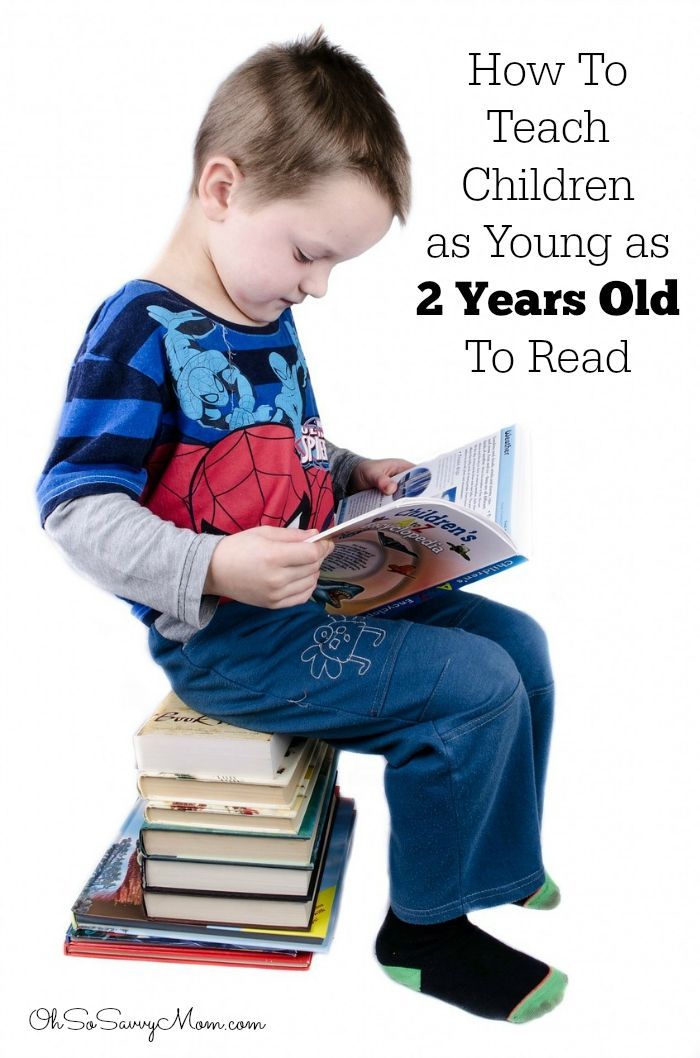 But it can hardly be called homework, because classes are held in person.
But it can hardly be called homework, because classes are held in person.
Can homeschooling be of high quality
A child is more comfortable at homeschooling. He gets enough sleep, eats homemade food and studies in a schedule that suits him. In addition, there is no bullying at home schooling. As a result, the child is not distracted by external stimuli and learns the material better.
In 2008, the US studied the performance of homeschoolers. And it turned out to be higher than that of their peers from secondary schools. Moreover, even in families where parents did not have a pedagogical education, and in relatively poor families.
There are more opportunities to develop natural inclinations in home schooling. For example, my daughter and I go through biology and geography in depth, because she likes them. In public schools, this is not always possible. The only way out is to hire tutors.
The only way out is to hire tutors.
2008 U.S. subject test scores
| Homeschoolers | School students | |
|---|---|---|
| Literature | 89 | 50 |
| Mother tongue | 84 | 50 |
| Mathematics | 84 | 50 |
| Natural sciences | 86 | 50 |
| Humanities | 84 | 50 |
| Basic knowledge | 88 | 50 |
| Total results | 86 | 50 |
Literature
Home -hiChules
89
School students
50
Native Language
Home -hiChules
84
Pupils of schools
50
General results
Homemors
86
Students of schools
50
Source: “FREED in education”
What are the problems
Learn in knowledge of parents.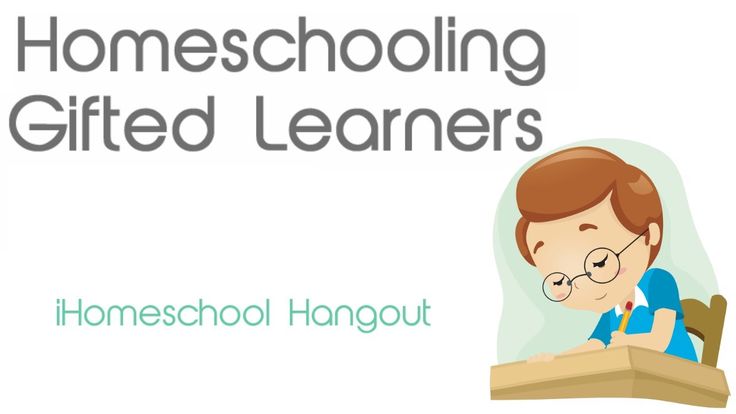 The study I mentioned showed that the more educated the parents, the better the knowledge of homeschoolers.
The study I mentioned showed that the more educated the parents, the better the knowledge of homeschoolers.
The fact is that a parent may not remember the school curriculum and he will have to learn it again. To do this, the parent must be able to learn on his own.
For example, to brush up on my knowledge, I always skim through a paragraph and watch a video on the topic before class. But my husband is more erudite, and he does not need such training. In history, geography, foreign languages, he already knows more than what is written in textbooks.
/list/adhd-in-school/
Crop Drawings and Fractional Problems: 7 Techniques for Learning with ADHD
Parents may also lack teaching skills. The study found that in 2008, only 16% of homeschoolers had parents who had a teacher education. And that made learning difficult.
But I studied at a pedagogical university and I can present complex material. For example, a daughter is bad at math, but she loves to count money and go shopping. As a result, we explain many topics using the example of finance.
As a result, we explain many topics using the example of finance.
And in English, we added interactive content with the help of the Polyglot video course. It is for adults, but our daughter liked it.
But if the parent himself cannot understand the program or does not know how to explain the material, all that remains is to hire tutors or enroll the child in an online school.
Lack of understanding of the role of parents. When a child is in school, a parent is an accepting and loving person with whom one can rest and relax. And with home schooling, he becomes a teacher who constantly demands and controls something. It can be difficult for a child to readjust and take such a teacher seriously.
Lack of communication. At home schooling, the child is less likely to communicate with peers and other adults, except for parents. And for extroverted children, this can be a problem.
My daughter has never shown interest in peers, so she has no discomfort. In addition, twice a week she goes to the drawing school and communicates with the guys and teachers there.
In addition, twice a week she goes to the drawing school and communicates with the guys and teachers there.
We also have friends with children — we visit each other, play board games and get out into nature. And the daughter regularly communicates with people in our area: all the cashiers, sellers, janitors and mothers on the playground know her.
/chess/
How much does it cost to send a child to chess
Plus every evening she has a teleconference with her grandparents, great-grandmother, godfather and friends. And finally, the daughter has a psychologist with whom she discusses experiences, learns to live her feelings and manage her emotions.
Lack of consistency. At the very beginning of training, it can be difficult to make a study schedule. Having received complete freedom, I did not understand how much time to devote to each subject and which textbooks to follow. We came to the optimal mode gradually, through trial and error.
Lack of motivation. Children are very happy when they learn that they no longer have to go to school. And it seems to parents that now they will study hard at home. And then it turns out that the child wakes up late, plays for a long time and has no time for lessons.
In order for the child to want to learn on his own, you need to make the lessons interesting: show themed videos and take them to museums. With the story of my daughter, "Kaa Python History Lessons" on YouTube helped. For general development, we took her to the oceanarium, the Museum of Cosmonautics and the State Library in Moscow. In St. Petersburg, they were taken to the Hermitage, and in Georgia - to the ancient churches. In general, traveling helps us a lot: by the age of 12, my daughter had visited 16 countries and came into contact with other cultures.
We noticed that without pressure, the child sincerely learns about the world and motivation appears by itself.
The certification is a test for everyone. The child is under pressure from the expectations of the parents, and the burden of responsibility is on the parent. Everything is in tension, and this leads to quarrels.
The child is under pressure from the expectations of the parents, and the burden of responsibility is on the parent. Everything is in tension, and this leads to quarrels.
It is important to treat certifications correctly - not to chase high marks, but to rely on the knowledge and psychological health of the child. For us, grades are not important, and we don’t get upset because of triples. Only two will not suit us.
/prava/homeschooling/
Homeschooling rights
Criticism from others. Not everyone takes homeschooling seriously. Elderly relatives and school teachers may strongly criticize the parents for the fact that the child has stopped going to school.
For example, my daughter's grandmothers decided to transfer her to a school in their area, but we were not told anything. They believed that the daughter would fall behind the program, run wild, not enter the university, and her whole life would go downhill.
To reduce the intensity of passions, we briefly stopped communicating with grandmothers. Now they only arrange “control sections of knowledge” for their daughter: they ask the multiplication table or ask what she is reading now. But the daughter learned to move smoothly and with humor to other topics.
Who should not switch to home schooling
I think home schooling is not suitable for families in which parents do not have time to teach lessons or do not have money for tutors. If you completely entrust education to a child and do not control the process in any way, he will have problems with certification. Moreover, if he is not attached to any school, this will be revealed only in the ninth grade. And in order for a child to receive a certificate, they will have to catch up on knowledge immediately in a few years.
Very sociable children will also find it difficult to study at home. After all, circles happen several times a week and last only a couple of hours, and at school an extroverted child communicates with children all the time.